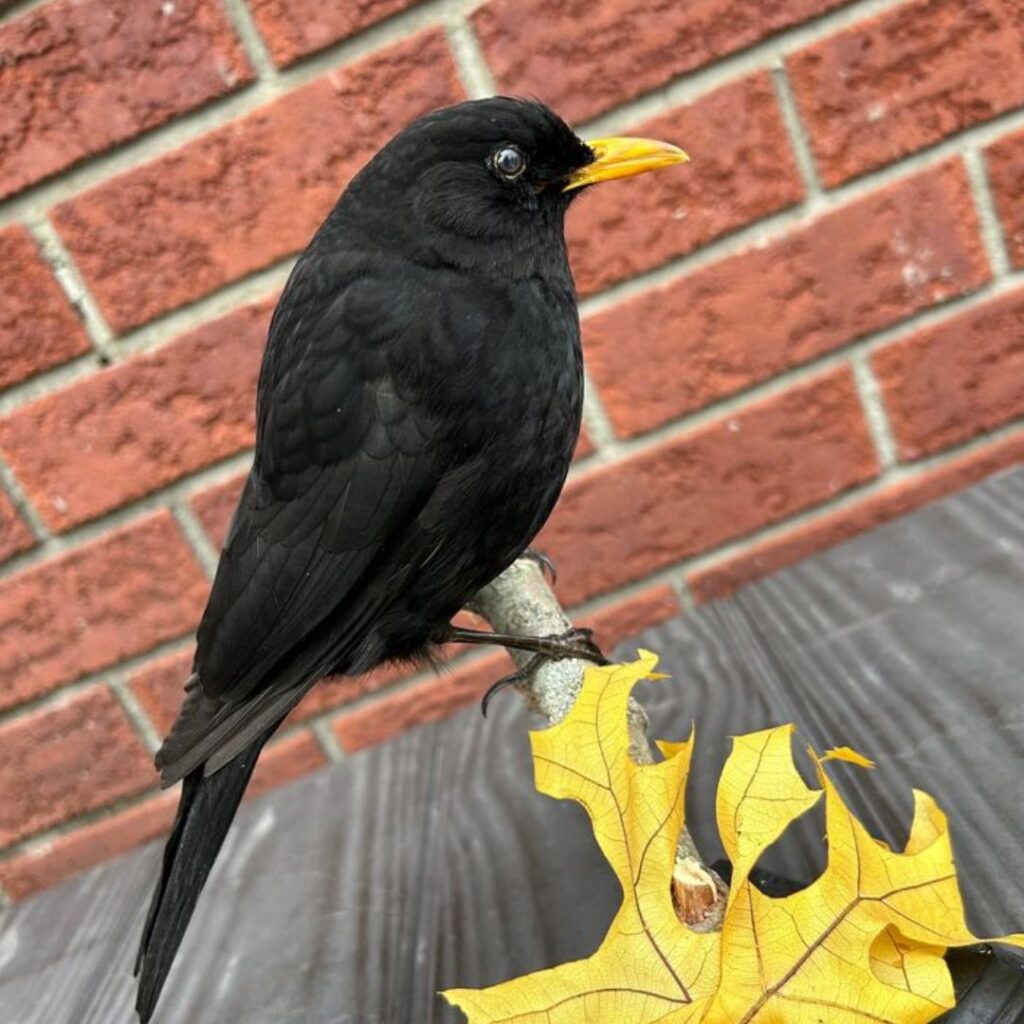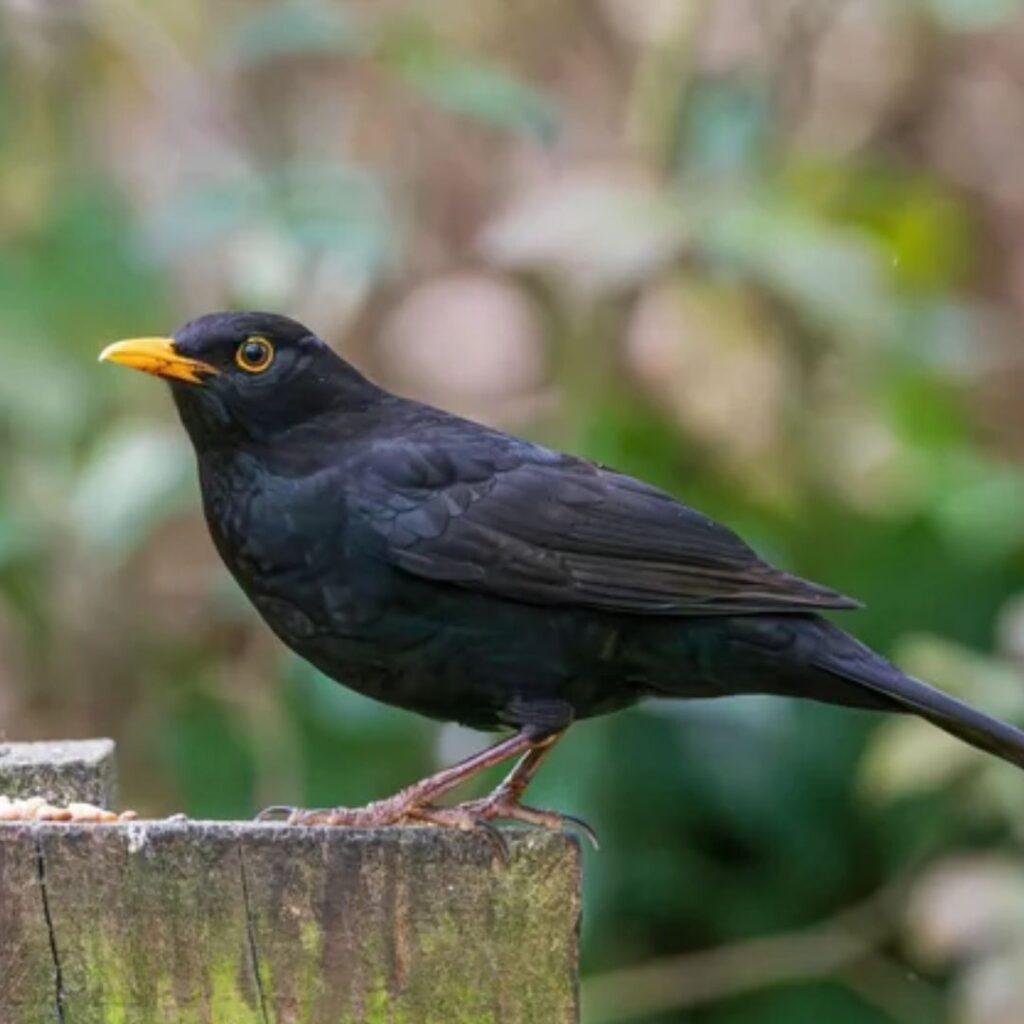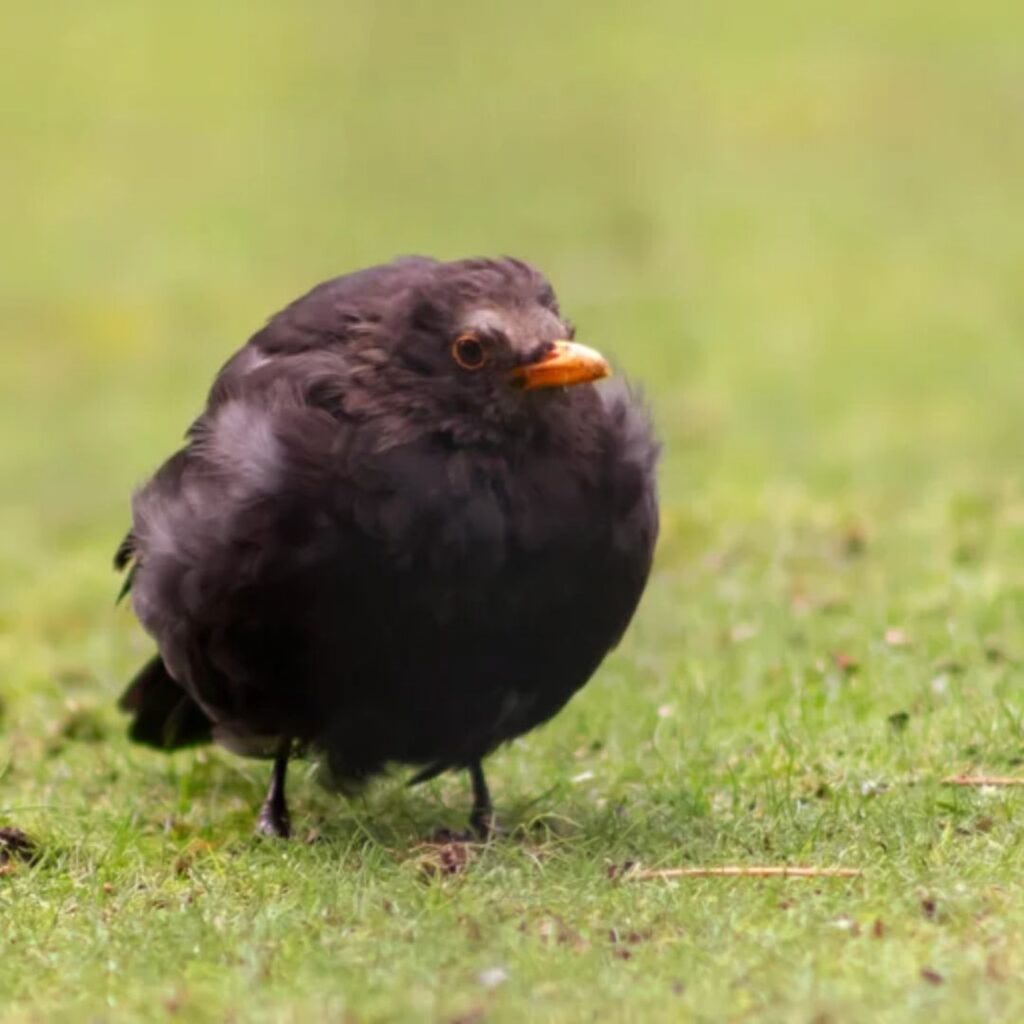
Nature often surprises us with its vibrant colors and striking contrasts. Among the many beautiful birds in the world, the black bird with a yellow beak stands out as a true marvel. This distinctive creature, known as the Common Blackbird (Turdus merula), captivates birdwatchers and nature enthusiasts alike with its sleek appearance and melodious song.
Also Read: Which Australian Bird is Black and White?
Identifying the Common Blackbird
The Common Blackbird boasts several distinctive features:
1. Glossy black plumage covering its entire body
2. Bright yellow beak that contrasts sharply with its feathers
3. Yellow ring around its eyes (in males)
4. Brown coloration in females, with a mottled breast
This unique combination makes the Common Blackbird easily recognizable, even for novice birdwatchers.
Habitat and Range
Common Blackbirds thrive in various environments:
1. Urban parks and gardens
2. Woodlands and forests
3. Farmlands and orchards
4. Suburban areas with plenty of vegetation
These adaptable birds inhabit much of Europe, parts of Asia, and have been introduced to Australia and New Zealand.

Behavior and Diet
Common Blackbirds exhibit interesting behaviors:
1. They hop along the ground, searching for food
2. These birds often tilt their heads, listening for underground insects
3. They sing beautifully, especially at dawn and dusk
4. Common Blackbirds eat a variety of foods, including insects, worms, berries, and fruits
Their diverse diet and adaptable nature contribute to their success in various habitats.
Nesting and Reproduction
The breeding habits of Common Blackbirds include:
1. Building cup-shaped nests in trees, shrubs, or human-made structures
2. Laying 3-5 blue-green eggs with brown speckles
3. Incubating eggs for about two weeks
4. Both parents caring for the chicks until they fledge
Conservation Status
Fortunately, Common Blackbirds have a stable population:
1. They adapt well to human-altered environments
2. Their numbers remain strong across their range
3. Climate change may affect their distribution in some areas
4. Conservation efforts focus on maintaining suitable habitats

Cultural Significance
Common Blackbirds hold a special place in human culture:
1. They feature prominently in European folklore and literature
2. Their song inspires poets and musicians
3. These birds often symbolize mystery or secrets in art
4. Blackbirds play a role in pest control, benefiting gardens and agriculture
How to Attract Common Blackbirds
If you want to see these beautiful birds up close:
1. Plant berry-producing shrubs in your garden
2. Provide a shallow water source for drinking and bathing
3. Maintain areas with short grass for foraging
4. Offer mealworms or fruit on ground feeders
Fascinating Facts
Here are some intriguing tidbits about Common Blackbirds:
1. They can mimic other bird songs and even human sounds
2. Blackbirds have excellent memory, remembering food sources for years
3. These birds sometimes use ants to clean their feathers (a behavior called “anting”)
4. In some cultures, seeing a blackbird is considered good luck

Distinguishing from Other Black Birds
While the Common Blackbird is distinctive, other black birds exist:
1. Ravens and crows have black beaks, unlike the Blackbird’s yellow beak
2. Starlings have speckled plumage and shorter tails
3. Grackles in North America have longer tails and iridescent feathers
4. Always consider size, shape, and behavior when identifying birds
Also Read: Bird with Red Head and Black and White Body
Conclusion
The black bird with a yellow beak, known as the Common Blackbird, enchants us with its striking appearance and melodious song. These remarkable birds not only add beauty to our surroundings but also play important roles in their ecosystems. By learning about and appreciating these creatures, we can deepen our connection to the natural world around us.
Whether you’re an experienced birdwatcher or simply someone who enjoys nature’s wonders, keep an eye out for the Common Blackbird. Its glossy black feathers and bright yellow beak make it a true gem in the avian world. Remember, every sighting of this magnificent bird offers a moment to pause and marvel at the incredible diversity of life on our planet.
Pingback: 11 Common Backyard Birds of North Carolina